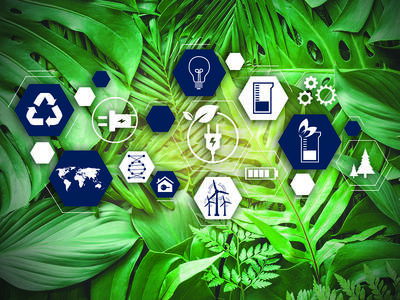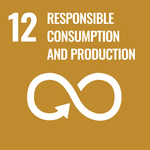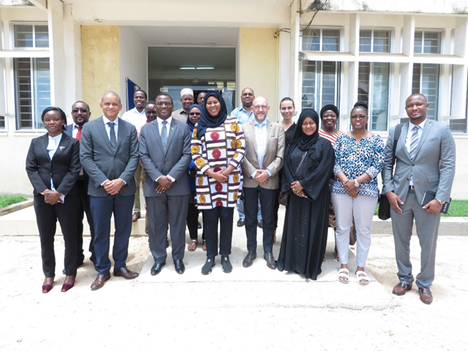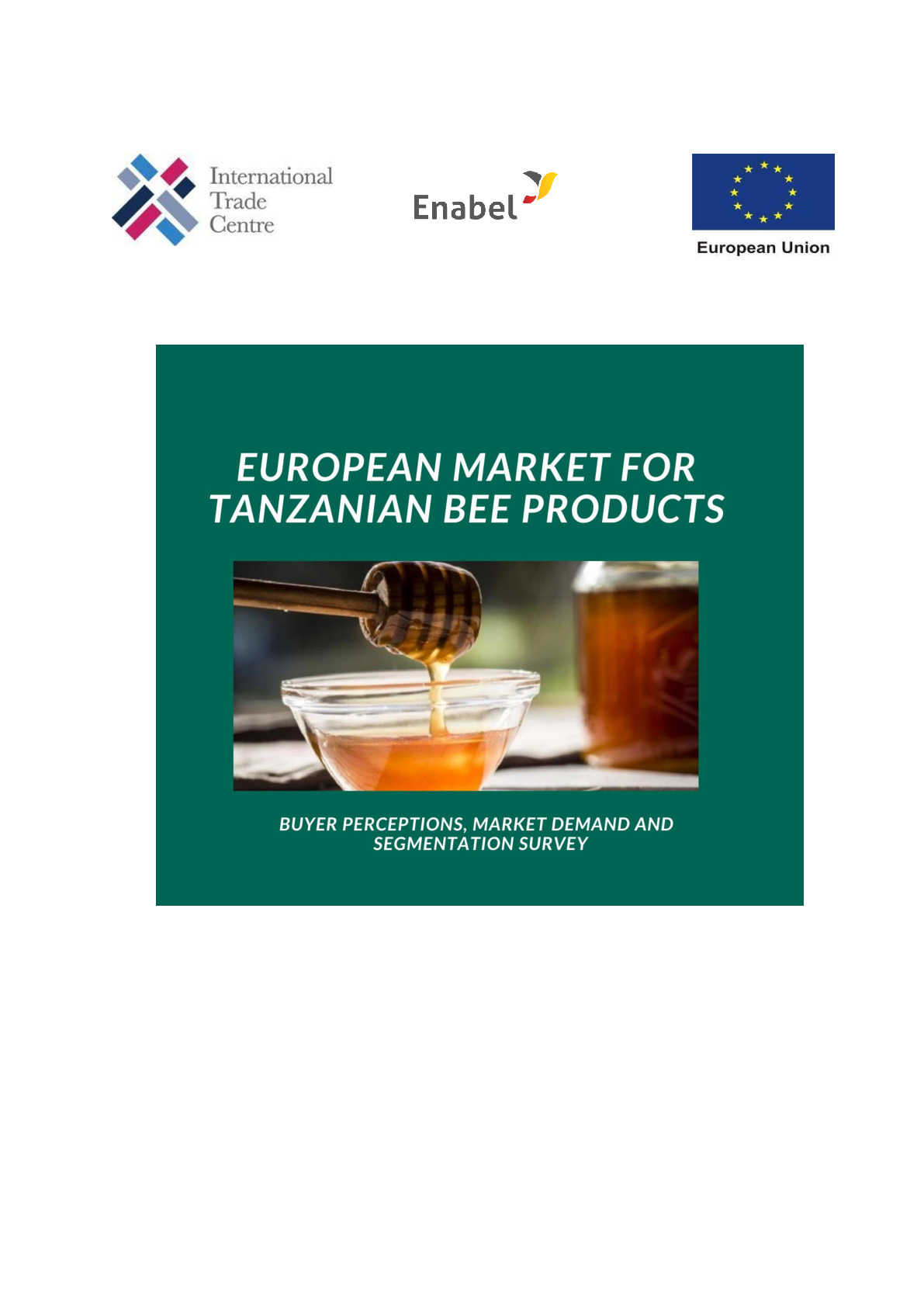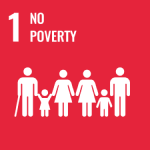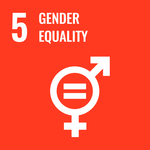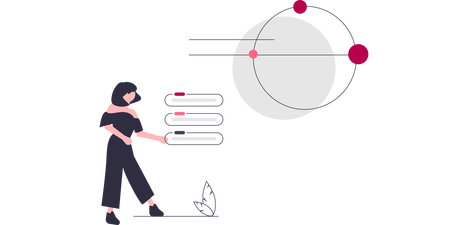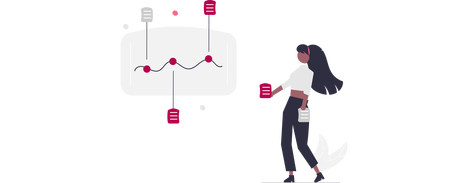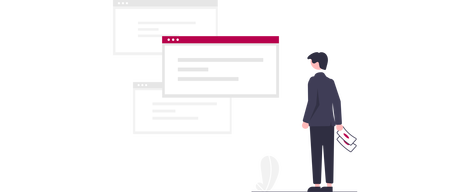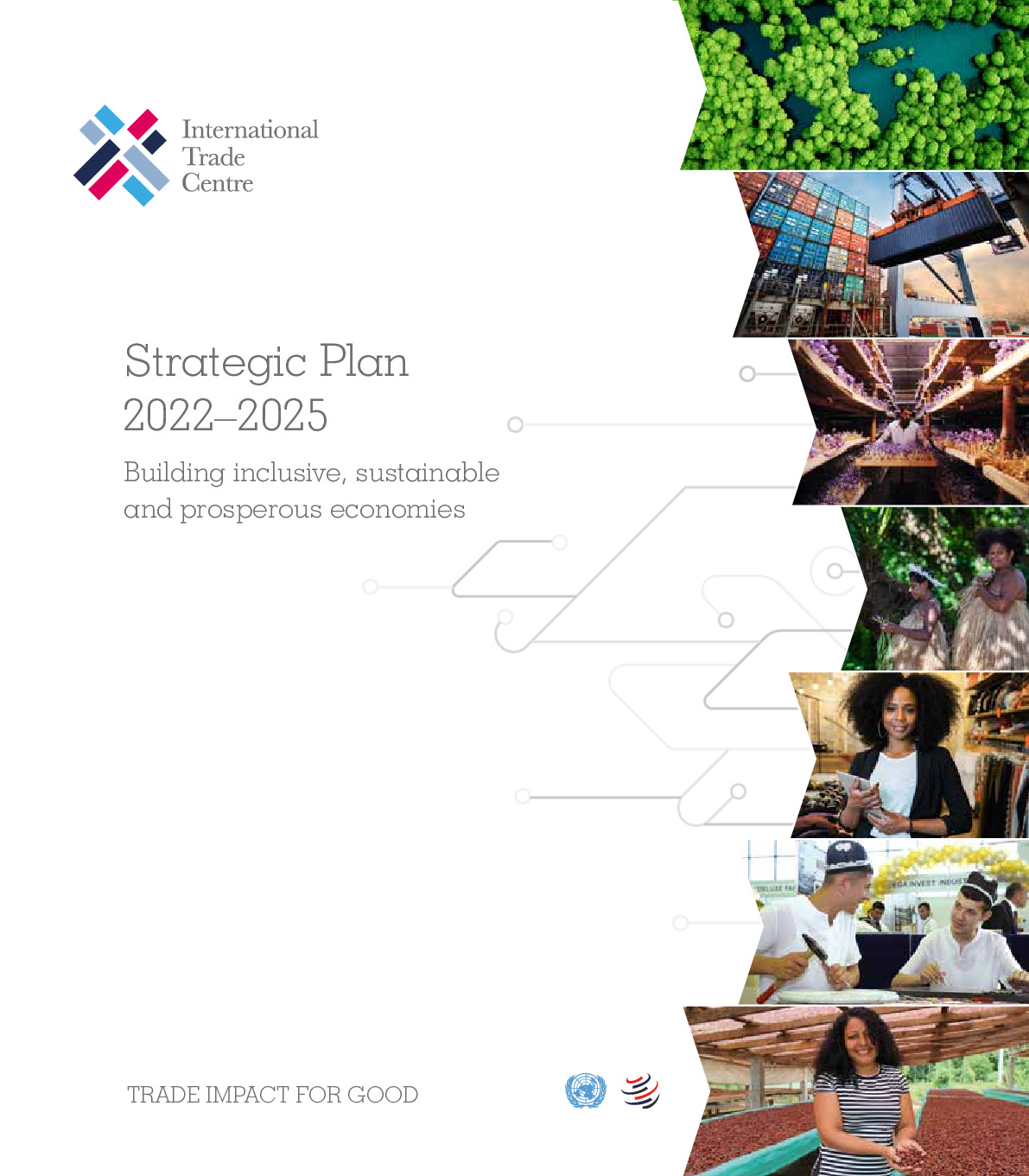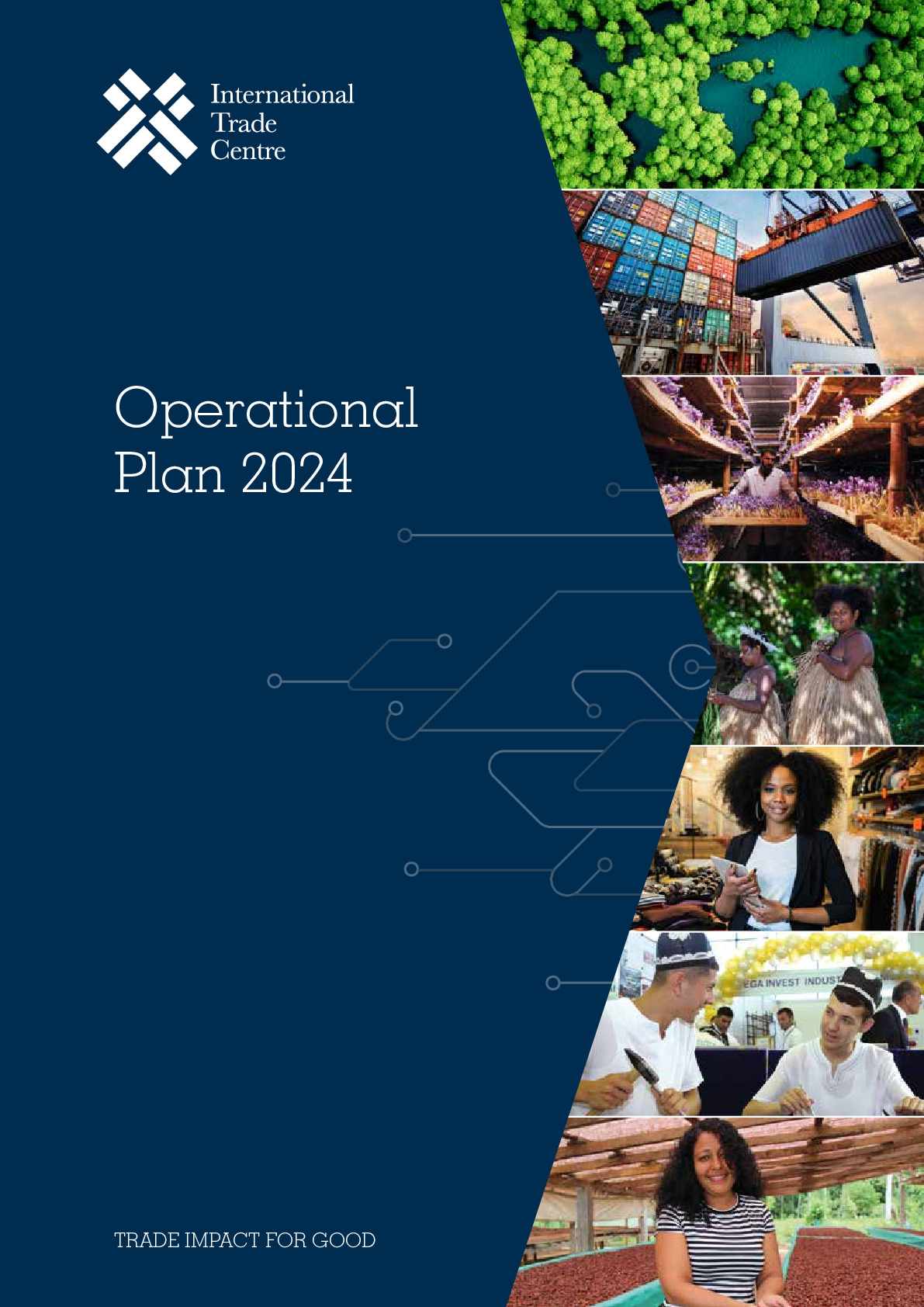<p>This project document presents Window 1 contribution for 2022 to support delivery in the impact area called Sustainable and Resilient Value Chain as part of the new ITC strategy 2022-2025.</p><p>The project focuses on developing methods and tools responding to major challenges to SME Competitiveness identified in the strategy including the massive financing gap for MSMEs, the heightened level of imbalance in value chains brought on by Covid 19 lockdowns, threats and opportunities brought about by ongoing reorganization of global value chains and the fact that digital connectivity is now a critical component of SME competitiveness.</p><p>To address these issues, the project will contribute to developing or enhancing tools within a number of existing ITC service areas:</p><ul><li>In Access to Finance, the project will provide training and support for existing Financing Gateway platforms that enable SMEs to more quickly identify sources of financing and support development of models for agro-finance called Finance for Action. </li><li>In SME performance, this project contributes to developing the MSME and BSO Benchmarking platform that will enable SMEs to be more agile in responding to developments in GVCs. In this case, the project will develop modules focusing on digital transition sustainability and inclusiveness within the platform, stress test the platform prior to launch, develop the outline for the certification program, develop content for the platform's public interface as well as communications and marketing material.</li><li>In the new area of trade and health started in 2021 with seed funding from Japan, the project will build on the narrow project approach currently be implemented to set up partnerships and develop a concept and results chain for a regional project to improve SME competitiveness in pharmaceutical value chains.</li><li>In fibre, texiles and clothing, the project will contribute to ongoing work to develop a new business model on collaboration in apparel supply chains based on reduced risk through inventory reduction and higher capital productivity. It will also support the Team Lead in his engagement on cotton with the WTO, the C4 and other international cotton stakeholders and support his participation in development of projects including a revised concept on the Route du Cotton, a partnership for decent work with ILO in Lesotho, an outline for continental sector development in Africa, a concept for continuation of work developing apparel in Madagascar and a project in Central America in collaboration with the US private sector, focusing on nearshoring and job creation to provide alternatives to migration. </li><li>In Marketing and Branding, project teams will also develop and pilot in Morocco and Tunisia high-performance sales training for SMEs to enable them to adjust to rapidly changing consumer tastes and highly competitive markets. This will also enable them to conceive and sell higher value products moving away from simply cost arbitrage, including services and service driven manufacturing </li><li>In FastTrackTech, SEC will develop tools and methods to help developing country SMEs to enhance their digital competitiveness and to connect to new opportunities in digital services markets especially in Tech. The FastTrackTech team will adapt the FastTrackTech Going International training for service exporting companies in francophone West Africa, will create an SME Trade Academy module of the FastTrackTech Going International training in English, test the FastTrackTech Going International market access strategy with a startup at Mobile World Congress and write a report on Internet connectivity challenges for small business in Zambia with the University of Zambia. This is closely linked to work under output 2.2 of the digital moonshot SWITCH-ON focusing on capacitating SMEs.</li><li>Finally, under Alliances for Action, this project will support developing concepts for additional projects to improve cooperation up and down the agribusiness value chain, focused on building capacity of small producers in the supply chain to manage mounting risks and adjust to issues that arise. It will also contribute to maintaining knowledge networks and to deepening A4A work in the coffee sector.</li></ul><p><strong><span style="color: rgb(0, 0, 0);">2023:</span></strong></p><p><span style="color: rgb(0, 0, 0);">In 2023, the project will continue to contribute to developing or enhancing tools within a number of existing ITC service areas:</span></p><ul type="disc"><li><span style="color: rgb(0, 0, 0);">In Access to Finance, SEC will develop and deliver a new corporate approach. The approach will consolidate work done across ITC on credit, improving data through the financing gateways, supporting fintech and early stage financing for startups, investment under Shetrades and DCP, mini-grants and mini-loans done by Office for Africa into a corporate approach. In addition, SEC will continue to provide bridge funding to the financing gateways in East Africa including IT support, advisory and licenses for related platforms. [proof of concept and Innovation]</span></li><li><span style="color: rgb(0, 0, 0);">As part of SEC’s efforts to bring its offer together, the section will create a new communication package that will support both internal and external communications. It will integrate all ongoing brainstorming work to revamp the section’s offer and align with clients (both internal and external) feedback. The new communication package will raise visibility on sector and enterprises level work aligning to ITC’s moonshots and corporate communication guidelines. [Innovation]</span></li><li><span style="color: rgb(0, 0, 0);">SIDA and other funders such as the Netherlands are increasingly asking ITC to show systemic impact through using a systems approach. SIDA has been particularly focused on ITC adopting the Market Systems Development approach. ITC and ILO developed a partnership called Trade4Jobs focused on using trade to improve existing jobs or develop new jobs in line with decent work principles. Under this W1, SEC will apply MSD principles to the apparel sector to complement work being done already to develop phase 2 for GTEX / MENATEX in particular providing root cause analysis and partner mapping to identify systemic approaches. SEC will also identify a geography in which to further build out the tools for a trade4jobs initiative with ILO and a funder, ideally SIDA. [Innovation and Proof of Concept]</span></li><li><span style="color: rgb(0, 0, 0);">In SME Performance, SEC will create a programme on Sustainable Supply Chain Management for MSMEs. First, an implementation methodology will be designed, that addresses the needs of MSMEs and large companies in developing sustainable supply chains and fosters collaborations among actors. The project will also create a step-by-step guide to sustainable supply chain management for MSMEs and develop a training and coaching programme for MSMEs on sustainable supply chain management. [Innovation]</span></li><li><span style="color: rgb(0, 0, 0);">In Fibre, Textiles and Clothing, SEC will develop or enhance concepts and approaches for assisting apparel value chain SMEs to adjust to evolving value chain conditions. It will concern concepts on cotton-related activities in close collaboration with WTO, UNCTAD and UNIDO. An approach will be developed on Cotton to apparel value chain in Africa under AfCFTA for regional and/or continental value chain integration in Africa. Another approach will be developed for increasing employment in the Textile & Clothing (T&C) sector in Central America. [Innovation]</span></li><li><span style="color: rgb(0, 0, 0);">In Tech Sector Development, SEC will develop tools for increasing impact driven environmental sustainability support to beneficiaries in ITC’s tech projects and beyond. A new SME Trade Academy course on Greening ICT will be created. The team will identify Circular Economy focussed hubs and Circular Economy focussed tech start-ups in the countries where SEC tech projects are active in cooperation with the GreenToCompete team. In addition, SEC will repurpose the Greening ICT training for tech start-ups into a Greening ICT Training of Trainers course for BSOs and showcase its Tech Sector Development tools through marketing materials, preferably a video, including the Maturity Assessment, Due Diligence Assessment, and Internationalization Assessment. [Innovation]</span></li><li><span style="color: rgb(0, 0, 0);">In Marketing and Branding, SEC will design a methodology for an integrated Branding and Digital Promotion programme – such that the methodologies of ecomConnect and branding are aligned. It will also create a short promotional document (2 pages) that can be used to explain the approach in client proposals.[Innovation and Proof of concept]</span></li></ul><p><span style="color: rgb(65, 168, 95);"><span style="font-weight: 700;">2024:</span></span></p><p><span style="color: rgb(65, 168, 95);">In 2024, the project will contribute to enhancing and piloting tools with service areas focusing especially on developing systemic approaches, expanding work in services and manufacturing, and leveraging additional funding through pilots / proof of concept:</span></p><ul><li><span style="color: rgb(65, 168, 95);">In Access to Finance, we made initial steps to build a new corporate approach in 2023, but the new A2F lead starts in April 2024. With her arrival, we will finalize the corporate approach by June 2024 through consultations across ITC. This will continue to include close collaboration with moonshot teams on financing for women and youth and climate finance. The corporate approach will include further development and piloting of the SME Development Fund mentioned as part of the milestones under Improved firm-level capacities to trade. Under this W1 project we will conduct a feasibility study on how ITC can add blending as part of it's systematic offer using funds such as the SME Development Fund, small grants, guarantees, and others. [Innovation]</span></li><li><span style="color: rgb(65, 168, 95);">In SME performance, ITC is rolling out the SME diagnostic platform across the portfolio on such large projects as Pakistan GRASP and EAC Markup II. Under this window 1, SEC will fund the development of a new functionality on the platform which will allow ITC projects to use it to conduct Expressions of Interest and filter and assess MSMEs as project beneficiaries. This is part of the SEC / IE joint work to fund, maintain and improve the benchmarking platform for SMEs and BSOs. In addition, we will fund support to 10 BSOs to use the benchmarking platform to help SME clients with their digitalization in coordination with the digital moonshot. [Innovation]</span></li><li><span style="color: rgb(65, 168, 95);">In 2023, ITC identified Uganda as a target country in which to co-develop a Trade4jobs pilot project with ILO and SIDA. Starting in May and through the summer of 2024, ITC and ILO will conduct sector selection, rapid market assessment, root cause analysis and project development. In Q3, we will jointly begin a pilot to focus on systemic change in a given sector. We have jointly agreed with ILO to select two sectors, with ITC focusing on a digitally enabled services sector in coordination with the digital moonshot. Uganda was selected with SIDA due to interest and prospects for funding. [Proof of concept]</span></li><li><span style="color: rgb(65, 168, 95);">In Fibres Textiles and Clothing, with the launch of GTEX II / MENATEX II studies are currently being carried out on the link between ITC work in apparel on poverty. Under this project, we will fund the programme to work on other innovative approaches and project development outside GTEX / MENATEX including pilots under consideration on improving supply chain coordination to reduce waste and project development work in Africa regional projects including in ECOWAS and ECCAS. We will also fund ITC's participation in World Cotton day and in the steering group co-developing with UNIDO the WTO/FIFA/C4 project to develop the cotton to clothing industry in West Africa. [Innovation]</span></li><li><span style="color: rgb(0, 168, 133);"><span style="color: rgb(65, 168, 95);">Finally, as part of the objective to increase ITC work in manufacturing, this project will finance a project concept for development of a continental automotive industry in Africa in connection with research being conducted by TMI following up on the the Made by Africa value chain analysis. The concept will focus on how growth of the automotive cluster in one country in Africa can be part of a change of narrative that will give Africa greater control over its industrial development. [Innovation]</span></span></li></ul>








